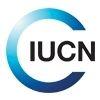|
|

Junior Professional
|
IUCN Global Ecosystem Management Programme (GEMP) is seeking a Junior Professional to gain valuable work experience by supporting the following duties:
Red List of Ecosystems:
• Support the development of the RLE database, in coordination with external partners and IUCN programmes (60%) on data curation, data-use agreements, storage, and front-end interface
• Assist with the development of material for online assessor trainings for RLE (MOOCs) also in close collaboration with external partners (20%), based on material obtained through in-person trainings
• Support as necessary, on proposal development, and reporting (10%)
• Provide technical and logistical support on research and scientific projects developed in conjunction with universities, or consortia such as the Global Mangrove Alliance, to move forward key research on RLE and its links to NbS, ecosystem services and natural capital accounting, etc. (10%)
|
• A Master of Science degree in Ecology, Biology, Geography or a related field, and a good understanding of/interest in natural sciences. A formal qualification on geospatial mapping, ArcGIS or statistics and data processing applications would be highly desirable. • At least 2 years’ background and/or experience working in geospatial mapping, ecology, communication, data processing or any other related field. Ability to be managed from a remote location and deliver in a timely manner. Prior experiences of working with IUCN or a detailed understanding of the organisation would be an advantage. • the individual must be committed to learning new skills and establishing work experience in a dynamic work place and in two critical areas of IUCN’s work. • Strong communicator and confident public speaking to information dissemination and communication. Pro-active attitude and diplomacy to communicate with partners and IUCN constituencies. • Excellent interpersonal and multi-tasking skills; Proven ability to work harmoniously as part of a team in a multi-cultural environment with sensitivity and respect for diversity. • Excellent written and spoken English required. Another IUCN official language is an advantage. |
Applicants are requested to apply online through the HR Management System, by opening the vacancy announcement and pressing the "Apply" button.
Applicants will be asked to create an account and submit their profile information. Applications will not be accepted after the closing date. The vacancy closes at midnight, Swiss time (GMT+1 / GMT+2 during Daylight Saving Time, DST). Please note that only selected applicants will be personally contacted for interviews.
Other job opportunities are published in the IUCN website: https://www.iucn.org/involved/jobs/
About IUCN
IUCN is a membership Union uniquely composed of both government and civil society organisations. It provides public, private and non-governmental organisations with the knowledge and tools that enable human progress, economic development and nature conservation to take place together.
Created in 1948, IUCN is now the world’s largest and most diverse environmental network, harnessing the knowledge, resources and reach of more than 1,400 Member organisations and around 16,000 experts. It is a leading provider of conservation data, assessments and analysis. Its broad membership enables IUCN to fill the role of incubator and trusted repository of best practices, tools and international standards.
IUCN provides a neutral space in which diverse stakeholders including governments, NGOs, scientists, businesses, local communities, indigenous peoples organisations and others can work together to forge and implement solutions to environmental challenges and achieve sustainable development.
Working with many partners and supporters, IUCN implements a large and diverse portfolio of conservation projects worldwide. Combining the latest science with the traditional knowledge of local communities, these projects work to reverse habitat loss, restore ecosystems and improve people’s well-being.
www.iucn.org
https://twitter.com/IUCN
